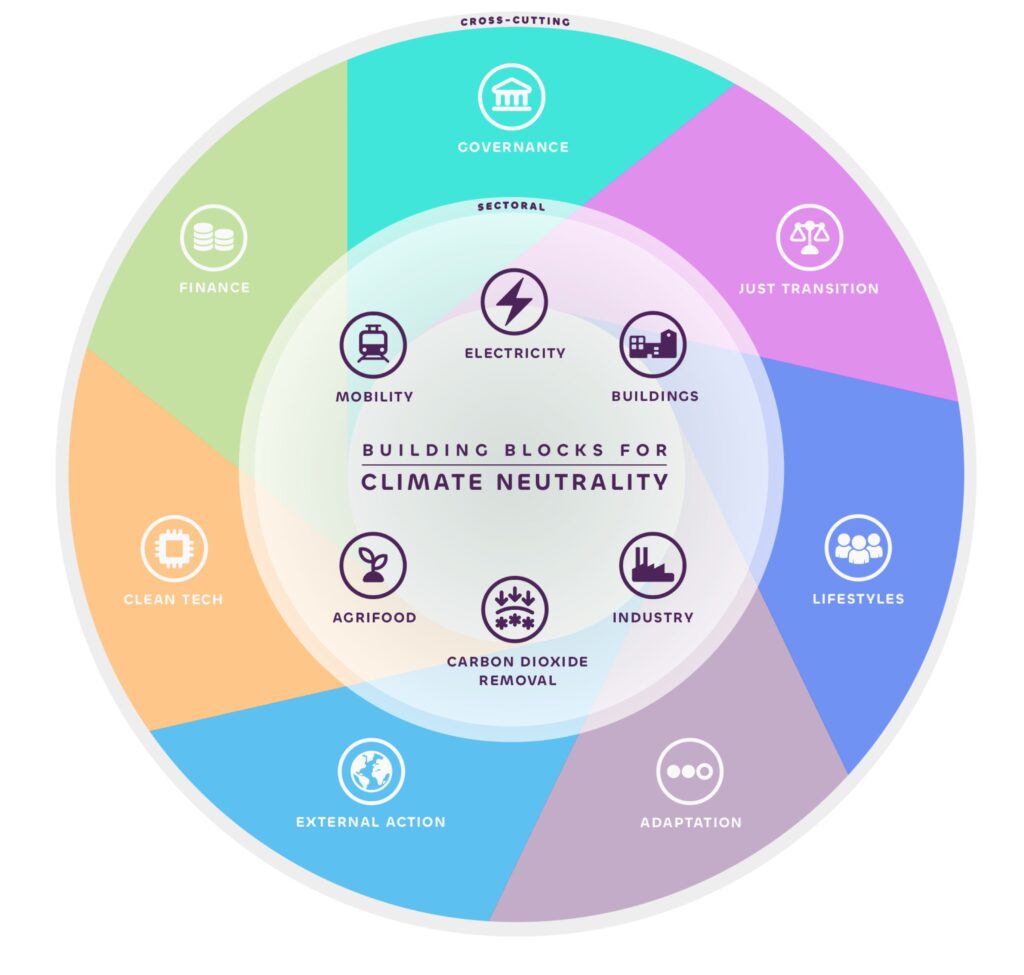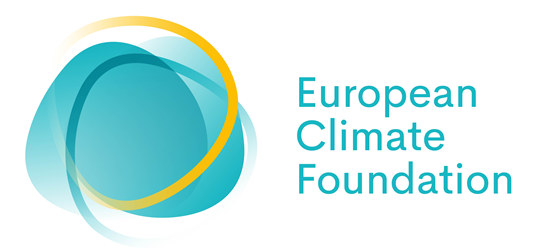ECNO – European Climate Neutrality Observatory
Context
The EU climate policy has been developing steadily over the past years. The European climate law makes reaching net zero by 2050 a legal obligation. With the Fit-for-55 package, the policy toolbox has been expanded and strengthened significantly to drive the necessary economic transition towards this goal.
But the current institutional EU framework does not comprehensively and sufficiently track the transition towards climate neutrality. The first progress assessment by the European Commission, which is due in September 2023, will likely only capture topline progress at a superficial level and will then not be repeated until 2028.
This is where the European Climate Neutrality Observatory (ECNO) comes in.
Objectives
ECNO is an independent initiative spearheaded by a consortium of research organisations which aims to help the EU achieve climate neutrality by providing scientifically rigorous analysis of economy-wide progress and an independent check on EU climate policy processes.
ECNO’s leading experts analyse the data underlying a comprehensive set of progress indicators to present a unique, up-to-date picture of the whole economy, and identify any gaps in data collection, benchmarking, and monitoring that need to be addressed. ECNO’s analysis focuses on the underlying enablers of climate neutrality, not just the observed outcomes.
ECNO enables policy makers, businesses, and civil society to hold the EU accountable for the delivery of climate neutrality. As an independent observatory, ECNO further seeks to inspire the uptake of better monitoring practices and policy making, as well as greater transparency on the EU’s transition to climate neutrality.
What ECNO does?
ECNO uses an indicator-based framework that tracks progress in economic sectors and cross-cutting policy areas, i.e., the ‘building blocks’ of a climate neutral future. The selection builds on sectoral split used in GHG inventories, and cross-cutting themes that have an impact on the emitting sectors, like finance, governance, and lifestyle changes (see figure 1).
Figure 1: Building blocks for the transition to climate neutrality

Source: ©ECNO based on previous work by Velten et al. (2021)
Each year, ECNO publish a flagship climate neutrality progress report, highlighting gaps in progress and missing data. ECNO’s assessment is also disclosed on ECNO’s platform.
I4CE’s role
I4CE oversees the assessment the “Finance” building block, following and analysing the evolution of several indicators. These indicators include for instance the climate investment gap that needs to be filled for the EU to respect its climate objective by 2030, climate and fossil-fuel subsidies or the share of banks that have a sound transition plan.
I4CE furthermore supports the ECNO partners work on the cleantech, adaptation, agriculture and industry building blocks.
Partners
ECNO is a consortium of leading European research organisations with expertise spanning the fields of climate policy, governance, economics, and finance across the whole economy: Ecologic Institute, I4CE, Reform Institute, New Climate Institute and ClimAct, based in Germany, France, Poland and Belgium.
Visite the Observatory website: https://climateobservatory.eu/
ECNO is funded by the European Climate Foundation.

